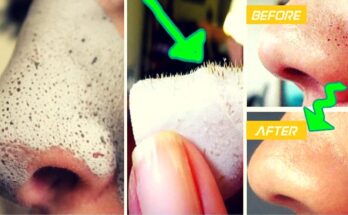Acne is a common and often frustrating skin condition that affects people of all ages. It can range from mild breakouts to severe cystic acne, and the search for solutions is a constant endeavor for many. While there are numerous over-the-counter and prescription treatments available, an increasing number of individuals are looking at their diet as a potential factor in the development and severity of acne. But is there an anti-acne diet, and if so, what does it involve?
This article delves into the science behind acne, the potential dietary triggers that may contribute to it, and whether adopting certain dietary habits can help prevent or reduce acne breakouts. We’ll also look at the role of nutrition in supporting healthy skin and provide practical guidance on foods that could help promote clearer skin.
Table of Contents
- Understanding Acne: What Is It and Why Does It Happen?
- Types of Acne
- Causes of Acne: Hormones, Genetics, and Lifestyle Factors
- The Link Between Diet and Acne
- The Science of Acne and Nutrition
- How Diet Influences Hormones and Oil Production
- Glycemic Index, Blood Sugar, and Acne
- Inflammation, Antioxidants, and Skin Health
- Foods That May Trigger Acne
- Dairy Products: Friend or Foe for Your Skin?
- High Glycemic Foods and Their Impact on Acne
- Processed Foods and the Role of Refined Carbs
- The Impact of Omega-6 Fatty Acids and Inflammatory Foods
- Foods That Promote Healthy Skin and May Help Reduce Acne
- Omega-3 Fatty Acids and Their Anti-Inflammatory Benefits
- Antioxidant-Rich Foods: Vitamins A, C, and E
- Zinc-Rich Foods and Their Role in Acne Prevention
- Foods with Low Glycemic Index: The Best Choices for Clearer Skin
- The Benefits of Probiotics for Skin Health
- Supplements and Anti-Acne Diet: What Works?
- Zinc Supplements for Acne
- Vitamin A and Beta-Carotene
- Omega-3 Fatty Acids: Fish Oil vs. Plant-Based Sources
- Probiotics and Gut Health
- Does Collagen Have Any Benefits for Acne-Prone Skin?
- Creating an Anti-Acne Diet: Tips and Meal Plans
- Basic Guidelines for an Acne-Friendly Diet
- Sample Meal Plan for a Week of Acne-Free Eating
- Foods to Avoid and How to Make Healthier Substitutions
- Lifestyle Factors to Complement Your Anti-Acne Diet
- The Role of Stress in Acne Development
- Sleep and Acne: How Rest Impacts Skin Health
- Exercise and Acne: Is Sweating Good or Bad for Your Skin?
- The Importance of Skin Care Routine and Its Relationship with Diet
- Real-Life Experiences: Success Stories and Challenges
- Case Studies of People Who Cleared Their Acne Through Diet
- Common Pitfalls to Avoid When Trying to Clear Acne with Diet
- Conclusion: Can an Anti-Acne Diet Really Make a Difference?
- The Bottom Line on Acne and Diet
- Other Factors to Consider in Acne Treatment
- A Holistic Approach to Skin Health
1. Understanding Acne: What Is It and Why Does It Happen?
Before diving into the specifics of diet and acne, it’s important to understand what acne is and why it occurs in the first place.
Types of Acne
Acne can manifest in various forms, ranging from mild to severe. Common types of acne include:
- Blackheads: Small, dark pores caused by clogged hair follicles.
- Whiteheads: Closed, clogged pores that appear as small, white bumps on the skin.
- Pimples: Inflamed, red bumps that may be painful to the touch.
- Cystic Acne: Deep, painful, large nodules under the skin, often resulting in scarring.
Causes of Acne: Hormones, Genetics, and Lifestyle Factors
Acne typically occurs when hair follicles become clogged with oil, dead skin cells, and bacteria. The overproduction of sebum (oil) is often linked to hormonal changes, which is why acne tends to flare up during puberty, menstruation, or periods of high stress. Genetics also play a significant role, as those with a family history of acne are more likely to experience it themselves.
Diet, however, is another factor that has gained increasing attention in recent years. While the connection between food and acne is still being explored by scientists, some evidence suggests that certain foods may contribute to acne flare-ups or, conversely, help improve skin health.
The Link Between Diet and Acne
The idea that diet plays a role in acne development is not new. Traditional medicine has long considered food an important factor in skin health, and modern research has started to uncover the complex ways in which what we eat could affect acne. For example, high-sugar diets, dairy consumption, and foods with a high glycemic index (GI) have been implicated in worsening acne, while anti-inflammatory and nutrient-dense foods may offer benefits.
2. The Science of Acne and Nutrition
How Diet Influences Hormones and Oil Production
Hormones such as insulin, androgens, and cortisol have a direct impact on oil production in the skin. When you consume certain foods, especially those high in sugar or processed carbohydrates, insulin levels spike. High insulin can lead to an increase in androgens, which in turn stimulates sebaceous glands in the skin to produce more oil, potentially clogging pores and causing acne.
Additionally, dietary fats can influence the type of fats that are deposited in your skin. Omega-6 fatty acids, found in many vegetable oils, can promote inflammation, while omega-3 fatty acids found in fish, nuts, and seeds have anti-inflammatory properties that may help to reduce acne.
Glycemic Index, Blood Sugar, and Acne
Research has shown that foods with a high glycemic index (such as sugary snacks, white bread, and pasta) can contribute to acne. These foods cause a rapid spike in blood sugar, which triggers a cascade of hormonal responses, leading to increased oil production and potential breakouts. On the other hand, foods with a low glycemic index, such as whole grains, legumes, and certain fruits and vegetables, are less likely to cause these spikes and may help reduce the likelihood of acne.
Inflammation, Antioxidants, and Skin Health
Chronic inflammation is a key factor in the development of acne. When the body is inflamed, the skin’s sebaceous glands produce more oil, which can clog pores and lead to pimples. Foods that are rich in antioxidants, such as fruits, vegetables, nuts, and seeds, can help reduce inflammation and protect the skin from oxidative stress, potentially improving acne symptoms.
3. Foods That May Trigger Acne
While many people focus on topical treatments for acne, understanding the role that food plays in exacerbating the condition is just as important.
Dairy Products: Friend or Foe for Your Skin?
Dairy has long been suspected as a contributor to acne. Some studies suggest that the hormones found in milk, particularly those in skim milk, could increase oil production in the skin, leading to clogged pores and acne. However, the research is mixed, and some individuals may not experience any acne flare-ups from consuming dairy.
High Glycemic Foods and Their Impact on Acne
As mentioned, foods with a high glycemic index can lead to blood sugar spikes and an increase in acne-causing hormones. Foods such as sugary breakfast cereals, pastries, white bread, and sugary beverages are some of the main culprits in this category.
Processed Foods and the Role of Refined Carbs
Refined carbs, which are common in processed foods, can also contribute to acne by triggering a similar insulin response as high-GI foods. Packaged snacks, fast food, and processed meats can also contain inflammatory additives and preservatives that may aggravate acne.
The Impact of Omega-6 Fatty Acids and Inflammatory Foods
While some fats are beneficial, others—particularly omega-6 fatty acids—can promote inflammation in the body. These are found in many processed oils, such as corn oil, soybean oil, and sunflower oil. Diets high in omega-6 fats and low in omega-3s can create an imbalance that exacerbates acne and other inflammatory conditions.
4. Foods That Promote Healthy Skin and May Help Reduce Acne
Just as some foods can exacerbate acne, others can help improve skin health and reduce the frequency and severity of breakouts. Here are some foods to consider adding to your diet if you’re looking to improve your skin:
Omega-3 Fatty Acids and Their Anti-Inflammatory Benefits
Omega-3 fatty acids, found in fatty fish (such as salmon, sardines, and mackerel), flaxseeds, and walnuts, are known for their anti-inflammatory properties. These fats can help balance the inflammatory response in the body, potentially reducing acne-related redness and swelling.
Antioxidant-Rich Foods: Vitamins A, C, and E
Vitamins A, C, and E are potent antioxidants that play an important role in skin health. Vitamin A helps regulate skin cell turnover, preventing clogged pores. Vitamin C is essential for collagen production and skin repair, while vitamin E helps protect the skin from oxidative damage.
Zinc-Rich Foods and Their Role in Acne Prevention
Zinc is an essential mineral that has been shown to play a role in skin health. It has anti-inflammatory properties and is involved in the regulation of sebum production. Foods rich in zinc, such as pumpkin seeds, chickpeas,




I am really loving the theme/design of your blog. Do you ever run into any browser compatibility problems? A small number of my blog readers have complained about my blog not working correctly in Explorer but looks great in Safari. Do you have any solutions to help fix this problem?